Idea by
Abhimanyu Singhal, Depanshu Gola
Architecture for Dialogue
Call for ideas 2020
Bus Depots X Night Shelters
Bus Depots X Night Shelters
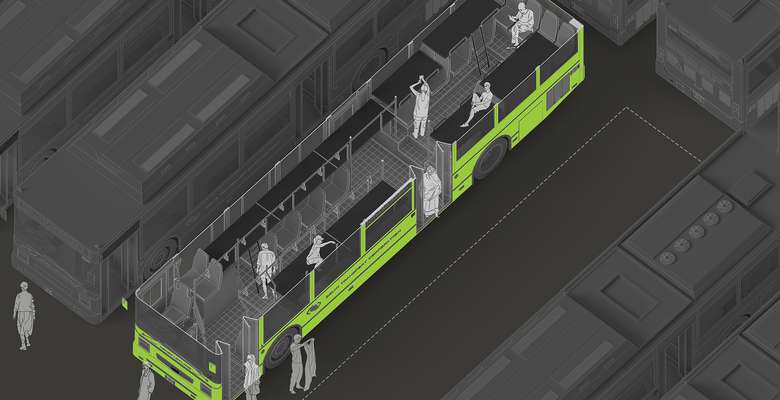
- New alliances
Cities are believed to be efficient models of living, but the majority of built spaces are used only during the day. Times of severe resource-crunch demand an exploration of architecture and urban design beyond the act of building more structures. When a bag of cement costs so much to the planet, it begs the question if we even need to build or at least that we build responsibly.
The acute shortage in Delhi night shelter capacity totals to 16,340 ~ only 6% of the homeless population. Poor location, adverse conditions and lack of safety in these shelters result in even lower usage. The project envisions to compensate inadequate capacity by utilising the bus fleet parked at depots in the night as shelter units.
The proposal derives its approach from believing that architecture is beyond just building structures and it’s not about making of a bright, shiny new thing. It demonstrates how we can globally manage and distribute constrained resources - think, reuse and rearrange!
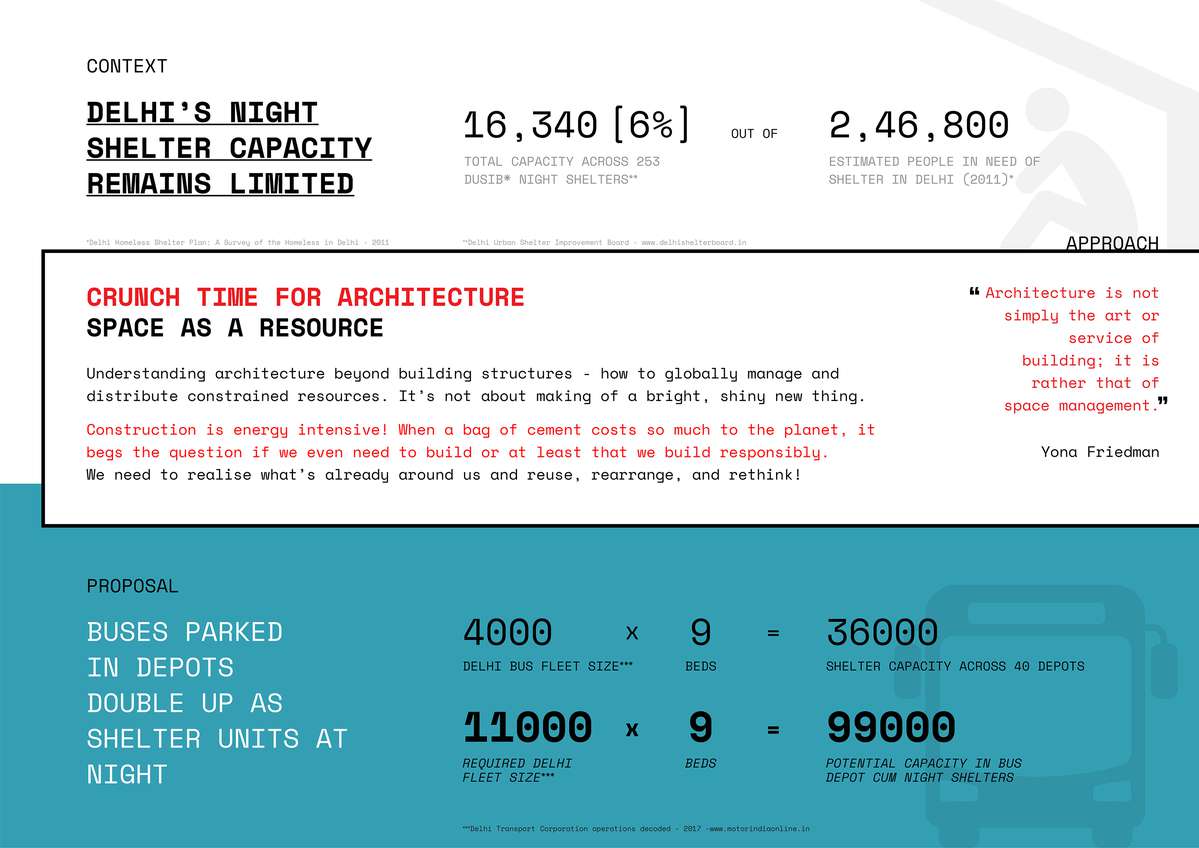
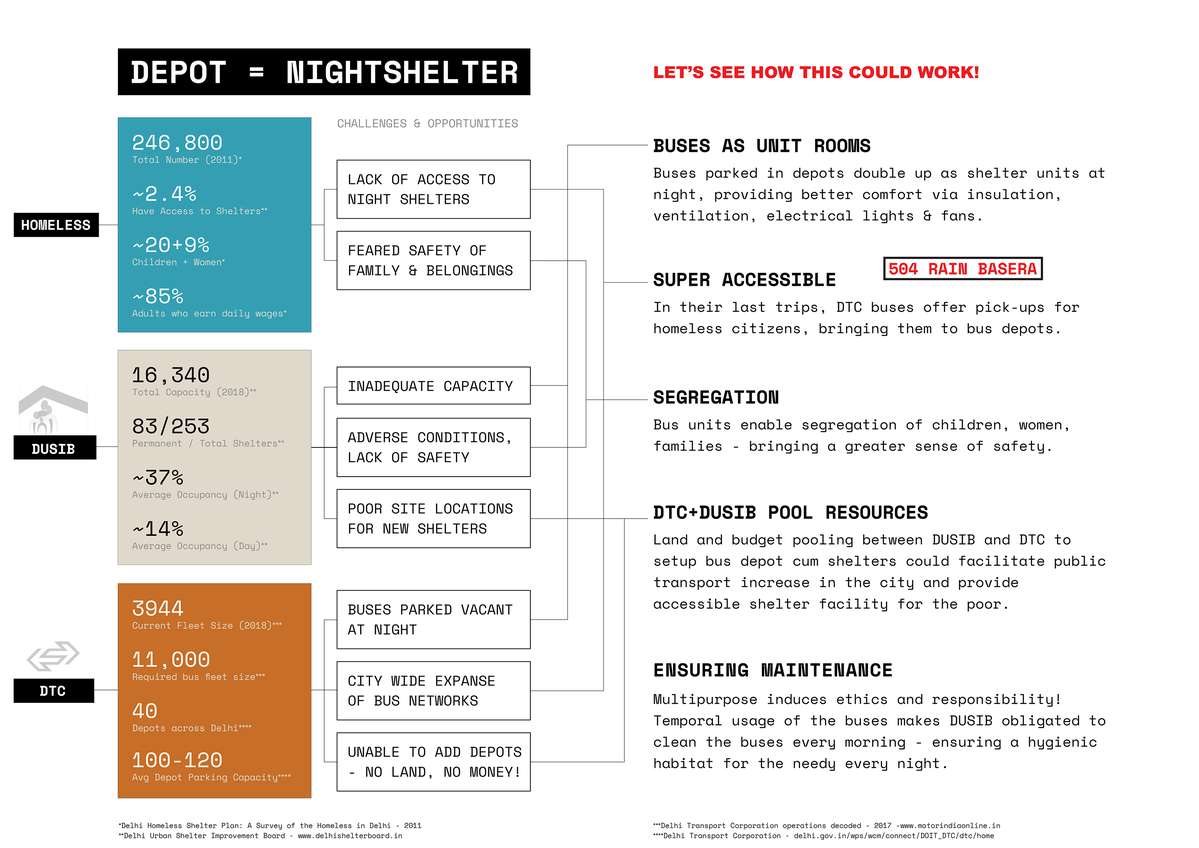
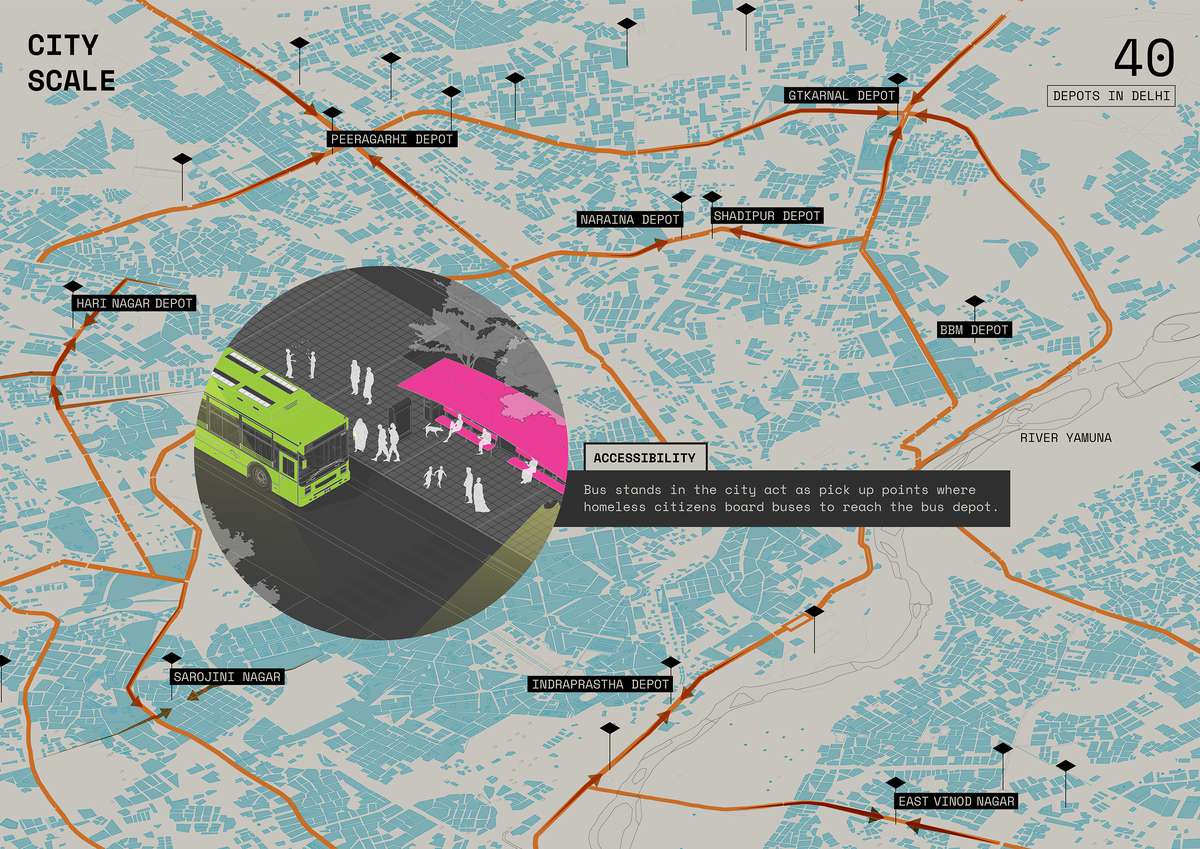
Bus stands in the city act as pick up points where homeless citizens board buses to reach the bus depot.
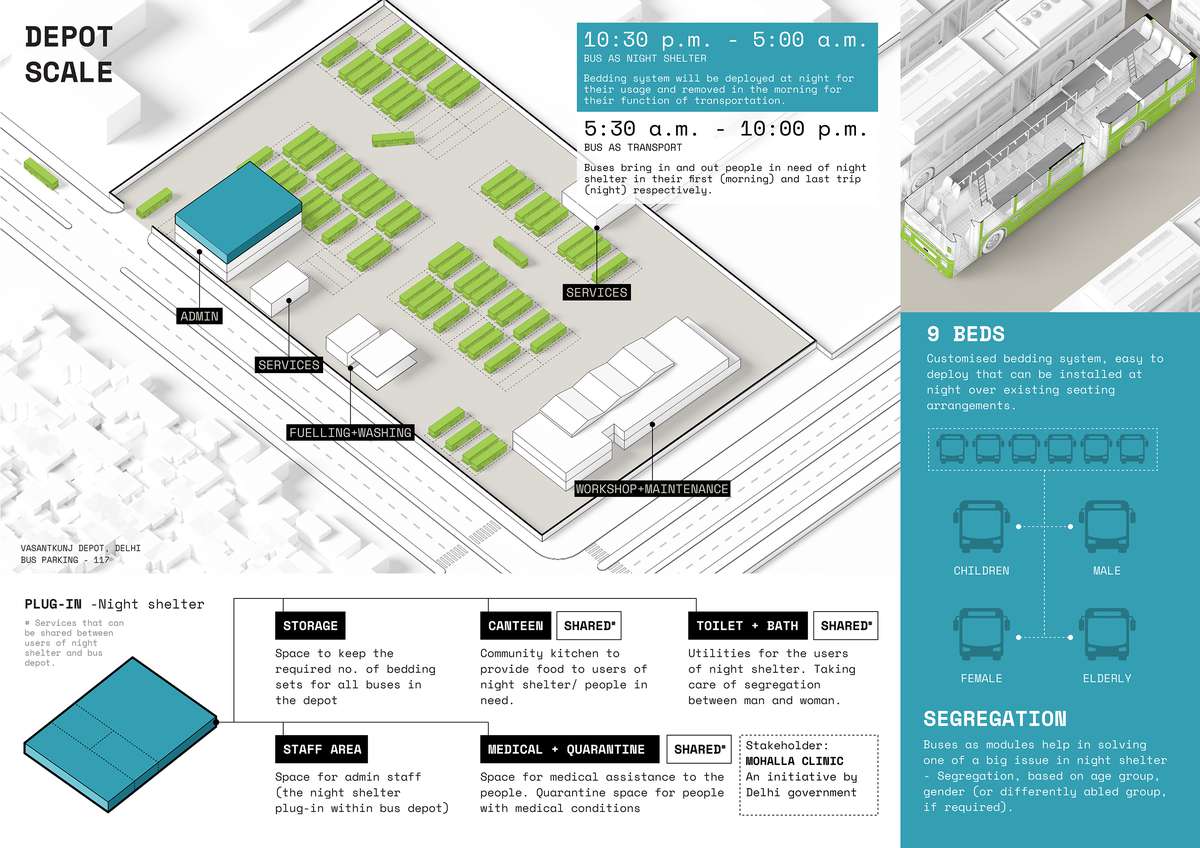
Multipurpose breeds activity!
Integrating a shelter in a bus depot associates a new meaning to the facility - plugging in medical and community kitchen facilities opens up the depot infrastructure not just to the new function, but as an active resource to the city - providing monetization opportunities to DTC depots.
Bus Depots X Night Shelters
Bus Depots X Night Shelters

- New alliances
Cities are believed to be efficient models of living, but the majority of built spaces are used only during the day. Times of severe resource-crunch demand an exploration of architecture and urban design beyond the act of building more structures. When a bag of cement costs so much to the planet, it begs the question if we even need to build or at least that we build responsibly.
The acute shortage in Delhi night shelter capacity totals to 16,340 ~ only 6% of the homeless population. Poor location, adverse conditions and lack of safety in these shelters result in even lower usage. The project envisions to compensate inadequate capacity by utilising the bus fleet parked at depots in the night as shelter units.
The proposal derives its approach from believing that architecture is beyond just building structures and it’s not about making of a bright, shiny new thing. It demonstrates how we can globally manage and distribute constrained resources - think, reuse and rearrange!
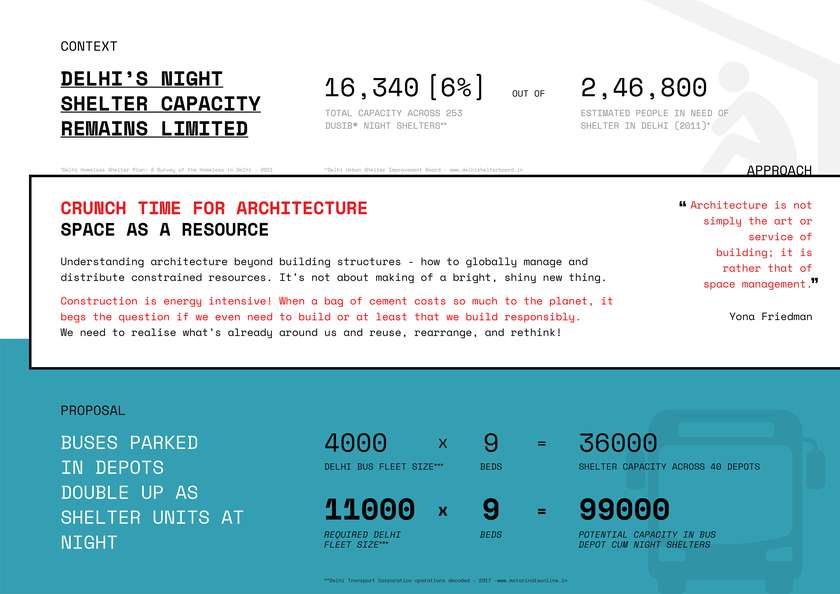
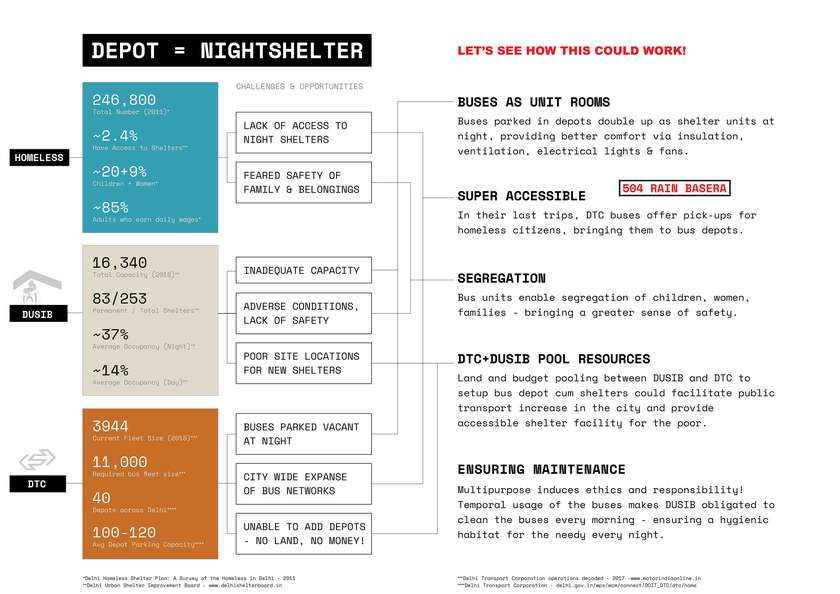
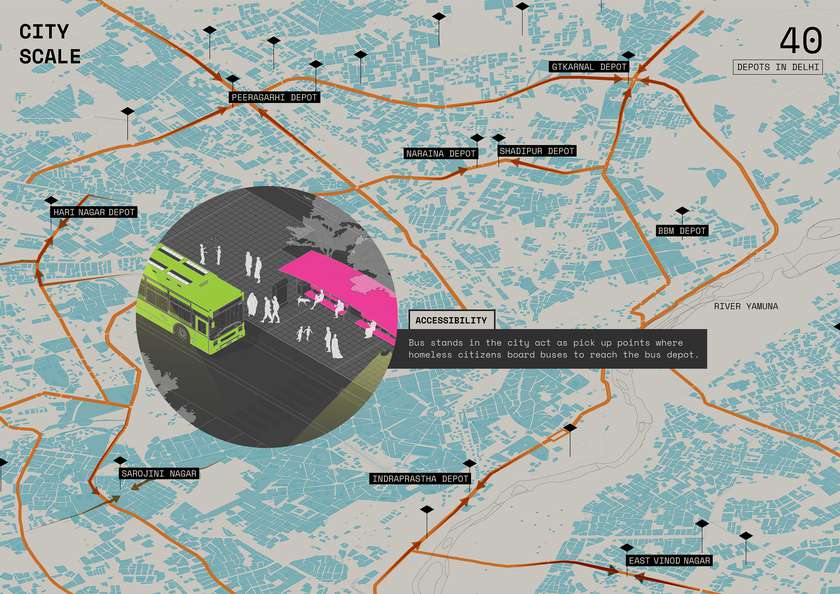
Bus stands in the city act as pick up points where homeless citizens board buses to reach the bus depot.
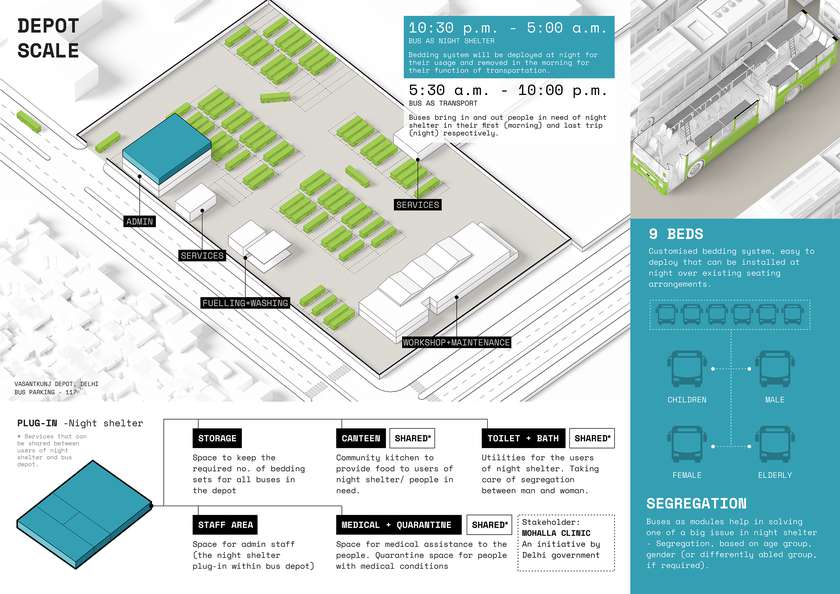
Multipurpose breeds activity!
Integrating a shelter in a bus depot associates a new meaning to the facility - plugging in medical and community kitchen facilities opens up the depot infrastructure not just to the new function, but as an active resource to the city - providing monetization opportunities to DTC depots.